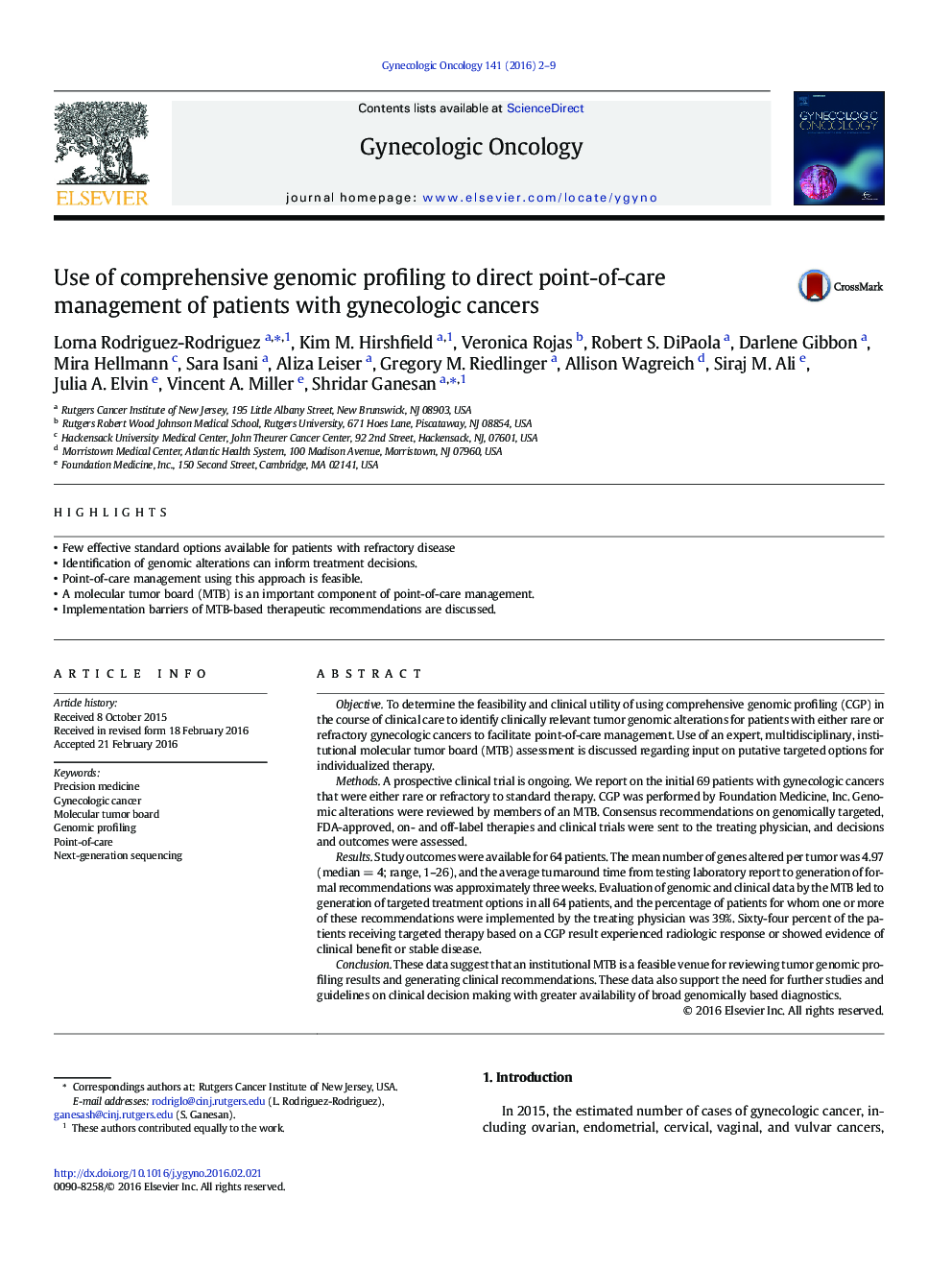| کد مقاله | کد نشریه | سال انتشار | مقاله انگلیسی | نسخه تمام متن |
|---|---|---|---|---|
| 3945520 | 1254268 | 2016 | 8 صفحه PDF | دانلود رایگان |
• Few effective standard options available for patients with refractory disease
• Identification of genomic alterations can inform treatment decisions.
• Point-of-care management using this approach is feasible.
• A molecular tumor board (MTB) is an important component of point-of-care management.
• Implementation barriers of MTB-based therapeutic recommendations are discussed.
ObjectiveTo determine the feasibility and clinical utility of using comprehensive genomic profiling (CGP) in the course of clinical care to identify clinically relevant tumor genomic alterations for patients with either rare or refractory gynecologic cancers to facilitate point-of-care management. Use of an expert, multidisciplinary, institutional molecular tumor board (MTB) assessment is discussed regarding input on putative targeted options for individualized therapy.MethodsA prospective clinical trial is ongoing. We report on the initial 69 patients with gynecologic cancers that were either rare or refractory to standard therapy. CGP was performed by Foundation Medicine, Inc. Genomic alterations were reviewed by members of an MTB. Consensus recommendations on genomically targeted, FDA-approved, on- and off-label therapies and clinical trials were sent to the treating physician, and decisions and outcomes were assessed.ResultsStudy outcomes were available for 64 patients. The mean number of genes altered per tumor was 4.97 (median = 4; range, 1–26), and the average turnaround time from testing laboratory report to generation of formal recommendations was approximately three weeks. Evaluation of genomic and clinical data by the MTB led to generation of targeted treatment options in all 64 patients, and the percentage of patients for whom one or more of these recommendations were implemented by the treating physician was 39%. Sixty-four percent of the patients receiving targeted therapy based on a CGP result experienced radiologic response or showed evidence of clinical benefit or stable disease.ConclusionThese data suggest that an institutional MTB is a feasible venue for reviewing tumor genomic profiling results and generating clinical recommendations. These data also support the need for further studies and guidelines on clinical decision making with greater availability of broad genomically based diagnostics.
Journal: Gynecologic Oncology - Volume 141, Issue 1, April 2016, Pages 2–9
